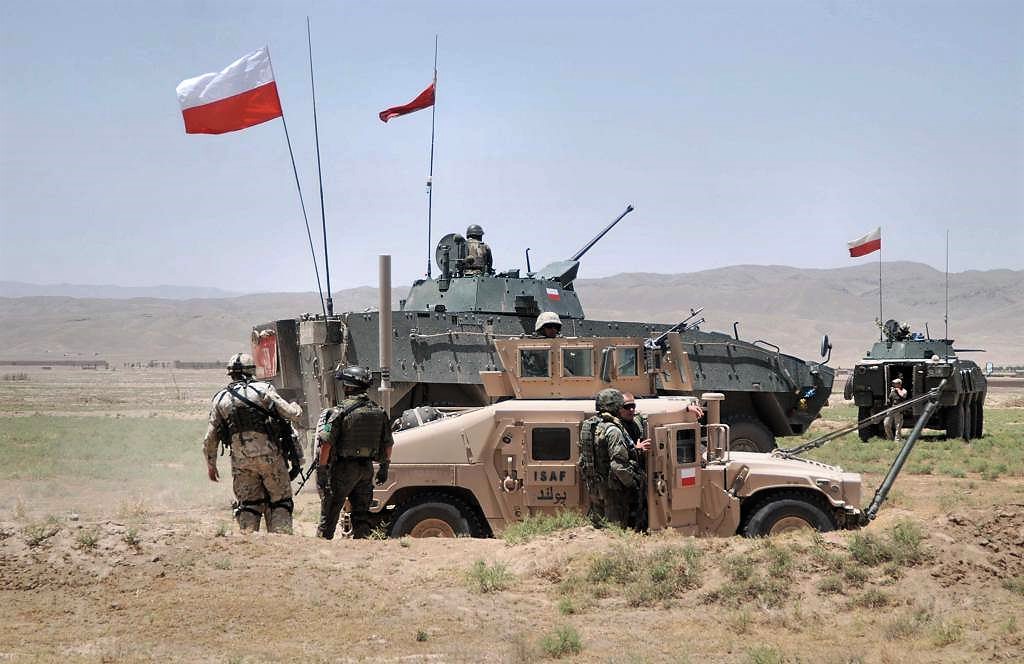As the Taliban today moved into the Afghan capital of Kabul, leading many to seek to flee the country, Poland has announced that it is issuing humanitarian visas to people who worked with Polish and European Union missions in the country, as well as to their families.
“We do not forget about allies, especially those in the greatest need,” tweeted Prime Minister Mateusz Morawiecki. “I have taken a decision to issue humanitarian visas for 45 people who cooperated with Poland, the EU delegation in Kabul and their family members. We keep our allied commitments.”
W Święto Wojska Polskiego nie zapominamy o sojusznikach, zwłaszcza tych w największej potrzebie. Podjąłem decyzję o wystawieniu wiz humanitarnych dla 45 osób, które współpracowały z Polską, delegaturą UE w Kabulu i członków ich rodzin. Dotrzymujemy swych sojuszniczych zobowiązań.
— Mateusz Morawiecki (@MorawieckiM) August 15, 2021
Morawiecki’s announcement followed growing calls today for action to be taken to protect those in Afghanistan who risked their lives to work with Poland.
This afternoon, a group of three former defence and foreign ministers, a former Polish ambassador to Kabul, and the founder of the Polish Humanitarian Action (PAH) charity issued a joint appeal to the foreign ministry.
“Many [Polish] diplomats and soldiers owe their lives [to Afghan co-workers]… Now they need help,” wrote the quintet. “The Taliban have surrounded Kabul, and former collaborators of foreign contingents or diplomatic representations are being killed in the cities occupied so far.”
Wspólnie z @JaninaOchojska @sikorskiradek @BogdanKlich i @P_Lukasiewicz bijemy na alarm w sprawie pilnej ewakuacji przyjaciół Polski z Afganistanu. List otwarty do MSZ. pic.twitter.com/1xGL4XARtM
— Tomasz Siemoniak (@TomaszSiemoniak) August 15, 2021
One of the group, former ambassador Piotr Łukasiewicz, later wrote that air evacuation from Afghanistan would be difficult in the current circumstances. But he appealed for assurances that those who manage to reach neighbouring countries will be given help at Polish embassies.
As well as the prime minister’s subsequent announcement on the issuing of humanitarian visas, the Polish foreign ministry also revealed that it was seeking to evacuate remaining Polish citizens from the country.
Poland has not had an embassy in Kabul since 2014, but it has been working with the French, German and US embassies to coordinate possible evacuations. Today, the ministry announced that it was in contact with five Polish nationals regarding evacuation.
@MON_GOV_PL @AndrzejDuda @MSZ_RP @MorawieckiM NIE. MAMY. CZASU. Mamy kilka, kilkanaście godzin, żeby ewakuować naszych afgańskich współpracowników. https://t.co/58SvPzq0og
— Jagoda Grondecka (@jagodagrondecka) August 15, 2021
Polish troops were present in Afghanistan from 2002 until this year, as part of the international forces stationed in the country following the US-led invasion of 2001. As well as combat duty, Polish soldiers were involved in infrastructure projects and training local security services.
At the peak of the operation, over 2,500 Polish troops were stationed there, with a total of more than 33,000 Polish personnel serving in the country across almost two decades. At the end of June this year, the last of Poland’s soldiers left Afghanistan, as international forces evacuated the country.
As the Taliban advanced and the security situation deteriorated following that pull-out, on Thursday Poland’s foreign ministry issued a statement saying that it was “appalled by the record numbers of civilian casualties as well as targeted killings due to the Taliban offensive”.
We thank government of Poland for raising their voice for supporting Afghanistan. https://t.co/GdvwjfGgst
— Nigara Mirdad (@NigaraOmar) August 12, 2021
Poland has itself recently seen a surge in the number of migrants – the majority of them from Iraq and Afghanistan – illegally crossing its border from Belarus. By the end of last week, almost 900 had arrived this year, compared to 120 in the whole of 2020.
The Polish government has accused Minsk of deliberately encouraging and allowing migrants to cross the border as “living weapons” in a “hybrid war” against Poland, which has supported the democratic Belarusian opposition.
Earlier this month, Poland issued a humanitarian visa to Belarusian sprinter Krystina Tsimanouskaya, who refused to return to her home country from the Tokyo Olympics. She is among hundreds of Belarusians to have sought refuge in Poland since last year.
Main image credit: Marcin Radzięda/Ministerstwo Obrony Narodowej

Daniel Tilles is editor-in-chief of Notes from Poland. He has written on Polish affairs for a wide range of publications, including Foreign Policy, POLITICO Europe, EUobserver and Dziennik Gazeta Prawna.




















